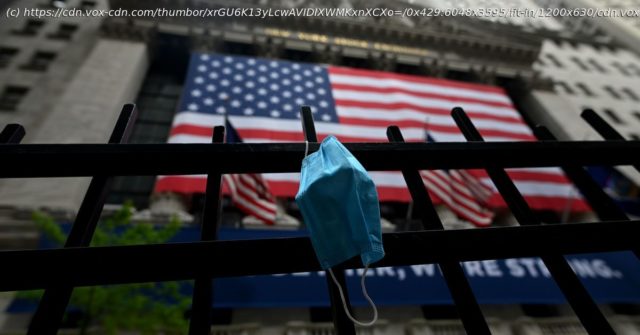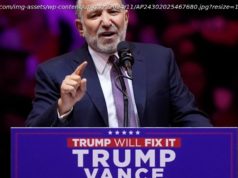The risks of going too big on the economy are real, as Summers warns in a Washington Post op-ed — but the White House argues going too small could be riskier.
President Joe Biden’s $1.9 trillion Covid-19 relief plan is getting new scrutiny. Larry Summers, who served as treasury secretary under Bill Clinton and National Economic Council director under Barack Obama, wrote an op-ed in the Washington Post published on Thursday that Biden’s proposal, in its “ambition, its rejection of austerity orthodoxy, and its commitment to reducing economic equality are all admirable.” Still, he wonders if Biden might be overdoing it. Summers, of course, played an important role in shaping the federal government’s response to the Great Recession in 2009 — a response that most Democrats, including Summers himself, now agree wasn’t ambitious enough. “We must make sure that it is enacted in a way that neither threatens future inflation and financial stability nor our ability to build back better through public investment,” he wrote this week. In other words, he’s worried about the risk of overheating the economy, and that once Congress passes one Covid-19 bill — especially one the size of Biden’s proposal — there’s going to be a reduced appetite for others. To be clear, many economists have been saying Biden’s original pitch is much more in line with what is necessary to steer the country forward, and Biden himself has been quite clear that he wants to take big swings on the economy and do some deficit spending with such low interest rates. Many Democrats are on board with that plan, too. Speaking with reporters in the Oval Office on Friday, Biden recalled how hard it was to get the recovery bill passed under Obama, and he appears determined not to repeat that mistake. “One thing we learned is, you know, we can’t do too much here,” the president said. “We can do too little. We can do too little and sputter.” He also laid out the stakes: “It’s not just the macroeconomic impact on the economy and our ability to compete internationally; it’s people’s lives. Real, live people are hurting, and we can fix it.” It’s not clear how much sway Summers has over the White House — Politico reported that his op-ed is being circulated in the West Wing, but presumably, if Summers had a significant amount of private access to Biden, he might not need to be voicing his opinions quite so publicly. It’s also unclear whether this might spook some Democrats, especially moderate Senate Democrats the caucus has to keep on board to get legislation passed. In the background is what continues to be a stark economic situation in the US: After shedding 140,000 jobs in December, the economy added back just 50,000 jobs in January. The country is still short 10 million jobs from where it was pre-pandemic, and some 4 million workers have dropped out of the workforce. In that context, it’s hard to gauge just how much to worry about overshooting it on the response. Jared Bernstein, a longtime economic adviser to Biden, made that argument during a press briefing on Friday. “This morning’s employment report revealed a stall in the American job creation machine and underscores how precarious of a situation our economy is in,” he said. “Lack of job growth is a result of our failure to act appropriately in response to this immense dual crisis, and our economy and our families can’t afford for us to fail to act once again.” The risks of going too big on the economy are real, but the risks of going too small are worse. The risk of going too big, briefly explained Summers’s argument is part math, part economics, and part politics. He acknowledges a consensus among economists that the economy would have been better off had the Obama administration gone bigger on fiscal stimulus in 2009. But he uses that acknowledgment to make an argument against going too big now, using estimates from the Congressional Budget Office on the hole that needs filling in the economy (the estimates of which can be off). His contention: Biden’s proposal would be three times the size of what’s needed, and that is something bad. The first plank of Summers’s argument in terms of what going too big means is that it would “set off inflationary pressures of a kind we have not seen in a generation.” Inflation has been quite low for years now, and if it were to appear, the Federal Reserve could always combat it with interest rate hikes. Biden’s team says it’s not oblivious to the inflationary risk; it just isn’t as worried about it as other risks. It’s a sentiment recently echoed by Fed Chair Jerome Powell at a recent press conference. “I’m much more worried about falling short of a complete recovery and losing people’s careers and lives that they built because they don’t get back to work in time,” Powell said.






